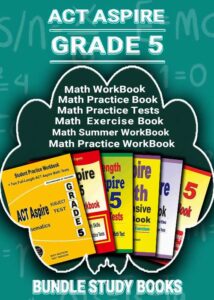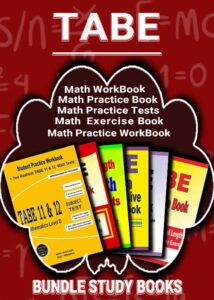
Study Time: 3minutes
Ace Your State Standardized Math Tests: Tips and Tricks for Success
State Standardized Tests are a pivotal part of a student’s academic journey, especially when it comes to math. These exams can influence everything from your placement in advanced classes to college admissions. But fear not! You can excel in your State Standardized Math Tests with the right strategies and resources. In this blog post, we’ll delve into effective tips and tricks to help you succeed, highlighting the importance of math practice books and how they can be your secret weapon in test preparation.
Understand the Test Format
Before you start prepping, it’s crucial to familiarize yourself with the structure of your State Standardized Tests. Knowing the types of questions—multiple-choice, open-ended, or problem-solving—will help you tailor your study approach. Review the test guidelines your state education department provided to understand the content areas covered.
Why State Standardized Tests Matter
State Standardized Tests assess your grasp of the state curriculum and benchmark your performance against statewide standards. High scores can open doors to advanced programs and scholarships and enhance your college applications. Recognizing the significance of these tests can motivate you to prepare diligently.
Start Early and Create a Study Schedule
Procrastination is the enemy of success. Begin your preparation well in advance to avoid last-minute cramming. Craft a realistic study schedule that allocates time for each math topic. Consistency is key—regular study sessions are more effective than sporadic, intensive ones.
Leverage Math Practice Books
Math practice books are an indispensable resource for anyone aiming to ace their State Standardized Math Tests. These books offer:
– Targeted Practice: They focus on specific topics aligned with state standards.
– Variety of Problems: Exposure to different question types enhances problem-solving skills.
– Detailed Solutions: Step-by-step explanations help you understand the methodology behind each answer.
– Practice Tests: Simulated exams provide a real test experience, helping you manage time and stress.
Invest in reputable math practice books recommended by teachers or peers who have excelled in the tests.
Identify and Strengthen Weak Areas
Everyone has strengths and weaknesses. Use diagnostic tests from math practice books to pinpoint the areas where you need improvement. Focus your efforts on these topics:
– Review Fundamental Concepts: A strong grasp of basic principles is essential for tackling complex problems.
– Seek Help When Needed: Don’t hesitate to ask teachers or tutors for clarification on challenging concepts.
– Use Online Resources: Websites and educational platforms can offer additional explanations and practice problems.
Develop Problem-Solving Strategies
Math isn’t just about numbers; it’s about thinking critically and logically. Enhance your problem-solving skills by:
– Understanding the Problem: Read questions carefully to comprehend what’s being asked.
– Planning Your Approach: Decide the best method to solve the problem before diving in.
– Checking Your Work: Review your solutions to catch any careless mistakes.
Master Test-Taking Techniques
Excelling in State Standardized Tests isn’t just about knowing math—it’s also about test-taking prowess. Here are some strategies:
– Time Management: Allocate your time wisely. Don’t spend too long on one question.
– Answer Easy Questions First: Build confidence by securing the points you’re sure about.
– Use Process of Elimination: Narrow down multiple-choice options to increase your chances of choosing the correct answer.
– Stay Calm and Focused: Practice mindfulness techniques to reduce anxiety during the test.
Simulate Testing Conditions
Use math practice books to take full-length, timed practice tests under conditions similar to the actual exam. This exercise will help you:
– Get Comfortable with the Test Format: Familiarity reduces stress on test day.
– Build Stamina: Long tests require sustained concentration.
– Identify Timing Issues: Adjust your pace to ensure you can complete all questions.
Review and Reflect
After each practice test:
– Analyze Your Mistakes: Understand why you got a question wrong to avoid repeating the same errors.
– Review Correct Answers Too: Sometimes correct answers were lucky guesses. Make sure you understand them.
– Adjust Your Study Plan: Focus more on topics where you consistently struggle.
Stay Healthy
Your physical well-being significantly impacts your test performance:
– Get Enough Sleep: Aim for 8 hours of sleep, especially before the test day.
– Eat Nutritiously: Fuel your brain with healthy foods.
– Exercise Regularly: Physical activity reduces stress and improves concentration.
Build a Support System
Surround yourself with people who encourage and support your academic goals:
– Study Groups: Collaborate with peers to share knowledge and study tips.
– Communicate with Teachers: They can provide guidance and may offer extra help sessions.
– Parental Support: Keep your family informed about your progress—they can offer encouragement and resources.
Stay Positive and Motivated
Your mindset plays a crucial role in your success:
– Set Realistic Goals: Break down your objectives into achievable tasks.
– Celebrate Small Wins: Acknowledging progress boosts confidence.
– Visualize Success: Positive thinking can enhance performance.
Utilize Additional Resources
Beyond math practice books, consider:
– Educational Apps: Interactive tools can make learning more engaging.
– Online Tutorials: Videos can provide alternative explanations that might resonate better with you.
– Flashcards: Great for memorizing formulas and terms.
Understand the Scoring System
Knowing how the test is scored can inform your strategy:
– No Penalty for Guessing: If there’s no penalty, make sure to answer every question.
– Partial Credit Opportunities: Show your work where applicable to earn partial points.
Acing your State Standardized Math Tests is within your reach. You can boost your confidence and scores by starting early, utilizing math practice books, and employing effective study and test-taking strategies. Remember, preparation is a marathon, not a sprint. Stay committed, keep a positive attitude, and don’t hesitate to seek help when needed. Good luck!
Final Tip: On the day before the test, relax. Trust in the preparation you’ve done, get a good night’s sleep and approach the exam with confidence. You’ve got this!



